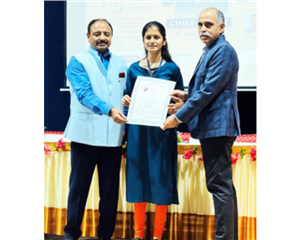HarperCollins CEO defends its global publishing policy
How can new readers be reached with audiobooks, and how do publishers adapt to the demand for audio content? Which revenue models really work and can subscription models increase sales? Is blockchain an area publishers should dive deeper into? How does the rights and licensing business work in the publishing scenes of Poland, Romania and Russia? Experts from all areas of publishing and neighbouring industries offered insights and first-hand information about book markets, revenue models and business opportunities all around the world during the Frankfurt Book Fair held from 10 to 14 October 2018.
17 Oct 2018 | By Dibyajyoti Sarma
During the Business Club Conference The Markets, Charlie Redmayne, CEO, HarperCollins UK gave the opening keynote on focus on revenue models. Redmayne is responsible for HarperCollins’ activities in the UK and Ireland, India and ANZ. He is also currently President of the UK Publishers Association (PA). In his keynote, he addressed changes in content creation, consumer behaviour, and the role publishers should play.
In its fourth years, as one of Frankfurter Buchmesse’s leading trade events, The Markets conference focused on successful revenue models from markets from all around the world.
Further experts from Georgia, Brazil, Sweden and Canada, as well as from Germany, the Netherlands, France, India, the USA and China will pass on their knowledge and highlight business opportunities. There will also be the opportunity to talk with players from a wide variety of markets around the world in one-to-one discussions.
Among other speakers, there was Shobha Viswanath, co-founder and publishing director, Karadi Tales.
Redmayne used his speech to robustly defend HarperCollins’s global publishing policy, call on publishers to ramp up consumer insight and urge publishers to work better with existing retail channels.
Part of his speech was a response to Andrew Wylie, founder of The Wylie Agency, who delivered the keynote at The Markets last year. In that address, the super-agent said that HarperCollins and other conglomerates’ models of acquiring world rights to publish in all territories were "bewildering", and not in the best interests of authors.
Redmayne said he disagreed with Wylie’s “excellent" speech, arguing that publishing across the world meant HarperCollins could “exploit the global reach of new and social media, engage with global communities of fans and readers, support global author brands and optimise sales, pick trends up and look at different ways of publishing, and share lessons globally that we learn locally.”
Redmayne added: “This is not a threat to authors and agents. It is just a choice. And we believe it is an opportunity to do things better, more effectively and, subsequently, more profitably for our authors."
He also argued that those who theorised a decade ago that the physical book was dead were wrong. But Redmayne underscored that the industry should not be overly celebrating: “Yes, the physical book never did go away but, equally, I am not seeing any great resurgence across the market in physical book sales. The truth is that we have arrested decline and we are maybe seeing some small gains in the past couple of years, but I believe much of this has to do with some exceptional publishing."
Consumers may be looking into other new digital media, Redmayne said, but “that’s OK, because it can help drive people back to books". To facilitate that, however, publishers must "create content in the form that fits with what consumers are looking for", after harnessing consumer insight to inform publishing choices and aid editors’ instincts, he added.
Content must be made available through as many digital channels as possible, Redmayne added, highlighting the explosion of audiobooks and podcasts as an example: “We must constantly create new opportunities for audio products, whether that be audio-first or audio originals. I’m fine with bringing out audio [editions] earlier than the book [editions]: it is a different product, targeting a different market."
But traditional retailers play a crucial part of the puzzle too, Redmayne said. “We need to work better with traditional retail channels by continuing to invest in the independent [bookselling] sector, as well as the chain bricks-and-mortar stores, supporting them however we can."
Frankfurt Audiobook Conference
This new half-day programme provided expert insights into audiobook business models, including streaming and bundling, as well as best practices and trends from markets around the world. The conference attendees dove into the Arab market, learn more about the US audiobook market, and find out what works in Asia. The conference culminated in a panel discussion on “Voice”, addressing how the production of more and more audio content and voice services will push the changes in the publishing industries even further.














 See All
See All